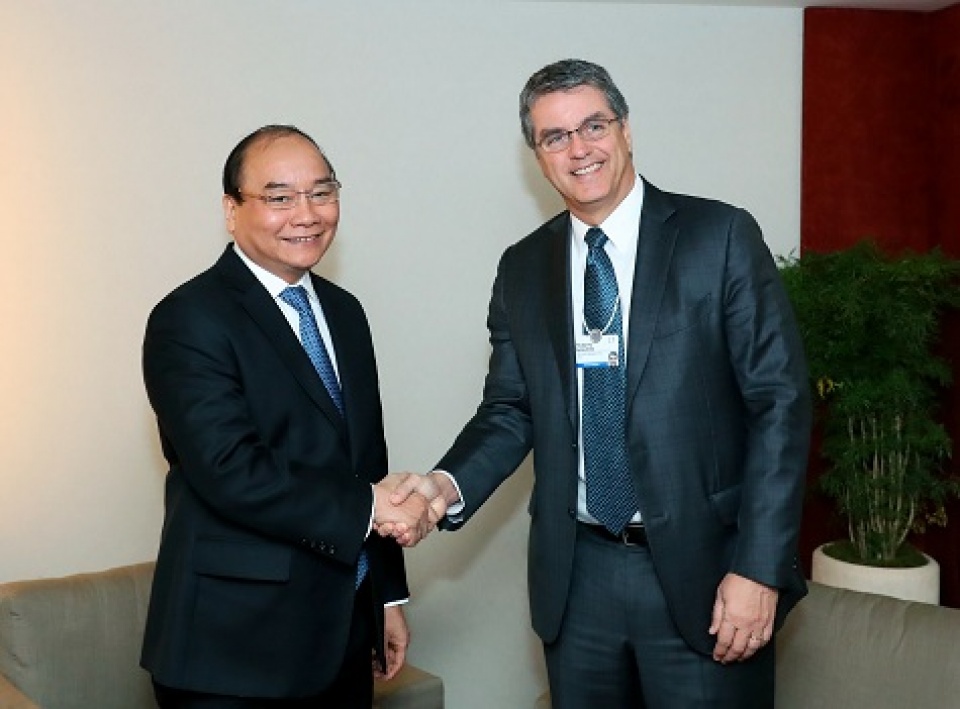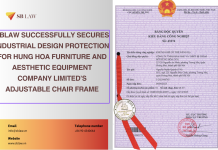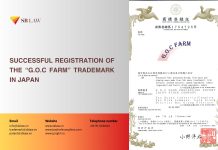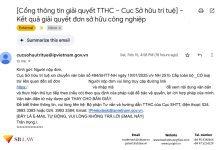On the sidelines of the 47th annual meeting of the World Economic Forum (WEF) in Davos City, Switzerland (Davos 2017), in the morning of 19 January (local time), Prime Minister Nguyen Xuan Phuc had a meeting with Director General of the World Trade Organization (WTO) Roberto Azevedo. At the meeting, the Prime Minister informed the WTO Director General that Viet Nam ratified the Protocol amending the Agreement on Trade-Related Aspects of Intellectual Property Rights (TRIPS Agreement).
I. Background
1. History of the Protocol amending the TRIPS Agreement
The Agreement on Trade-Related Aspects of Intellectual Property Rights (TRIPS Agreement) was signed on 15 April 1994 and came into effect from 01 January 1005 together with the establishment of the World Trade Organization (WTO). TRIPS Agreement is an important multilateral treaty on intellectual property rights (IPRs). Regulations of the TRIPS Agreements are legally binding to all WTO Members. The TRIPS Agreements entered into force with Viet Nam since the date Viet Nam became a Member of WTO (1997).
The TRIPS Agreement provides minimum standards on protection of inventions, trademarks, industrial designs, copyright and related rights and other IP subject-matters. In the field of invention, the TRIPS Agreement requires Members to provide protection for inventions in all areas of technology, including pharmaceutical. In implementing those provisions, many WTO Members who are least developed and developing countries have to face with many difficulties in implementing public health policies, particularly access to pharmaceutical resources by the public. This is due to the lack of flexible mechanism of the TRIPS Agreement on protection of public health, namely the mechanism for the use of inventions without permission of the right holder (also known as the compulsory licensing mechanism). One of the conditions of this mechanism is that production under compulsory licensing must be predominantly for domestic market (Article 31(f) of the TRIPS Agreement). This leads to the consequence that a Member who wishes to use this mechanism for a certain drug to prevent the risk of an outbreak but its pharmaceutical industry is incapable to produce it and that Member cannot request other Members to produce such kind of drug (due to the limitation set out by Article 31(f) of the TRIPS Agreement).
In order to resolve such difficulty, on 14 November 2001, in Doha, Qatar, the WTO Ministerial Conference made a Declaration on TRIPS and public health, of which Paragraph 6 “provided that Members with insufficient or no manufacturing capacities in pharmaceutical sector may face with problems in effectively use of technology transfer in accordance with provision of TRIPS Agreement on compulsory licensing”, and requested the TRIPS Council “to find quick solutions to resolve the problems and submit report to the TRIPS Council by end of 2002”.
In implementation of the Declaration of 14 November 2001 of WTO Ministerial Conference, on 30 August 2003, the WTO General Council approved a Decision (hereinafter referred as “Decision 2003”) to set up a temporary mechanism to allow WTO Members to manufacture pharmaceuticals under compulsory licensing for exporting to Members with insufficient or no manufacturing capacities in pharmaceutical sector. In addition, the Decision also requires the TRIPS Council to propose amendments of the TRIPS Agreement relating to this issue.
On 6 December 2005, the WTO General Council passed a Decision on promulgation the Protocol amending the TRIPS Agreement.
2. Main contents of the Protocol amending the TRIPS Agreement
The Protocol amending the TRIPS Agreement added a new Article (Article 31bis) after Article 31 and an annex to Article 73 of the TRIPS Agreement in order to formally set up the Mechanism provided for in Decision 2003. Main purpose of the Protocol is to ease the the world’s poors to access to medicines; and to create mechanisms for countries lacking pharmaceutical production capacity to meet their domestic needs, and to allow those countries to link with eligible export countries.
Article 31bis of the Protocol amending the TRIPS Agreement provided that the obligations of an exporting Member under Article 31(f) shall not apply with respect to the grant by it of a compulsory licensing of a pharmaceutical patent. It means that the provision of pharmaceuticals under the compulsory licensing does not limit to its domestic market, but allow that Member to export generic medicines.
In order to facilitate the application of Article 31 bis, the Annex of the TRIPS Agreement provides interpretation of main terms, such as “pharmaceutical product”, “eligible importing Member”, “exporting Member”; procedures to implement Article 31bis; conditions to grant a compulsory licensing; obligations of importing/exporting Member, etc. Accordingly, any Member, whatever a developed, developing or least developed country, shall be able become an eligible importing Member by submitting a Notification of intension to use the mechanism as an importing Member to the TRIPS Council. Importing Members may use the mechanism for all medical situations or only for some certain circumstances.
The Protocol provides mechanisms that WTO Members who are eligible importing Members or exporting Members under system of Article 31 bis and Annex of the TRIPS Agreement have to comply with.
“Eligible importing Member” means any least-developed country Member, and any other Member that has made a notification to the TRIPS Council of its intention to use the system as an importer. According to with paragraph 2(a) of the Annex of the TRIPS Agreement, an eligible importing Member has made a notification to the Council for TRIPS, that:
– specifies the names and expected quantities of the product(s) needed;
– confirms that the eligible importing Member in question, other than a least developed country Member, has established that it has insufficient or no manufacturing capacities in the pharmaceutical sector for the product(s) in question;
– confirms that, where a pharmaceutical product is patented in its territory, it has granted or intends to grant a compulsory licence in accordance with Articles 31 and 31bis of this Agreement and the provisions of this Annex.
“Exporting Member” means a Member using the system to produce pharmaceutical products for, and export them to, an eligible importing Member under compulsory licence. According to with paragraph 2(a) of the Annex of the TRIPS Agreement, the compulsory licence issued by the exporting Member under the system shall contain the following conditions:
– only the amount necessary to meet the needs of the eligible importing Member(s) may be manufactured under the licence and the entirety of this production shall be exported to the Member(s) which has notified its needs to the Council for TRIPS;
– products produced under the licence shall be clearly identified as being produced under the system through specific labelling or marking;
– before shipment begins, the licensee shall post on a website information on the quantities being supplied to each destination, the distinguishing features of the product(s) referred to; and
– the exporting Member shall notify the TRIPS Council of the grant of the licence, including information about name and address of the licensee, product quantity, duration of the licence, etc.
In addition, paragraph 4 of the Annex of the TRIPS Agreement provides that Members of the Protocol shall ensure the availability of effective legal means to prevent the importation into, and sale in, their territories of products produced under the system and diverted to their markets inconsistently with its provisions.
Full text of the Protocol amending the TRIPS Agreement is available at:
https://www.wto.org/english/tratop_e/trips_e/wtl641_e.htm
II. Viet Nam’s Instrument of Acceptance of the Protocol amending the TRIPS Agreement
On 16 January 2017, President Tran Dai Quang signed Decision No. 109/2017/QD-CTN ratifying the Protocol amending the TRIPS Agreement and notifying Viet Nam’s intension to use the mechanism under the Protocol as an importing Member (used WTO’s Notification Model 1, only in case of a national emergency or other circumstances of extreme urgency). This Decision took effect since the date of signing.
III. Information on WTO Members ratified the Protocol amending the TRIPS Agreement
The Protocol amending the TRIPS Agreement takes effect for all WTO Members that have ratified it. The WTO sets the deadline of 31 December 2017 for WTO Members have not yet ratified to complete the procedures. WTO Members who have not yet ratified the Protocol are still subject to the Provisional Mechanism under Decision 2003 until such Member ratifies the Protocol.
List of WTO Members ratified the Protocol amending the TRIPS Agreement is available at:
https://www.wto.org/english/tratop_e/trips_e/amendment_e.htm
Source: http://www.noip.gov.vn/web/noip/home/en?proxyUrl=/noip/cms_en.nsf/(agntDisplayContent)?OpenAgent&UNID=C192C76C8018438047258138000E8F35














